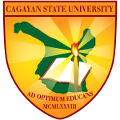Search results: 2064
This course is intended to acquaint students with the properties, reactions, sources, structure, functions, and biosynthesis of the biomolecules, namely, proteins, carbohydrates, lipids and nucleic acids, found in the living systems. It includes different metabolic processes where these biomolecules are utilized and how the metabolic processes are integrated into the total metabolic function of the living system. An understanding of these biochemical systems and chemical reactions will give a better appreciation of their roles in the maintenance of life and order in the body
D043 CHEM 13 Biochemistry
This course is intended to acquaint students with the properties, reactions, sources, structure, functions, and biosynthesis of the biomolecules, namely, proteins, carbohydrates, lipids and nucleic acids, found in the living systems. It includes different metabolic processes where these biomolecules are utilized and how the metabolic processes are integrated into the total metabolic function of the living system. An understanding of these biochemical systems and chemical reactions will give a better appreciation of their roles in the maintenance of life and order in the body
This course is intended to acquaint students with the properties, reactions, sources, structure, functions, and biosynthesis of the biomolecules, namely, proteins, carbohydrates, lipids and nucleic acids, found in the living systems. It includes different metabolic processes where these biomolecules are utilized and how the metabolic processes are integrated into the total metabolic function of the living system. An understanding of these biochemical systems and chemical reactions will give a better appreciation of their roles in the maintenance of life and order in the body
This course is intended to acquaint students with the properties, reactions, sources, structure, functions, and biosynthesis of the biomolecules, namely, proteins, carbohydrates, lipids and nucleic acids, found in the living systems. It includes different metabolic processes where these biomolecules are utilized and how the metabolic processes are integrated into the total metabolic function of the living system. An understanding of these biochemical systems and chemical reactions will give a better appreciation of their roles in the maintenance of life and order in the body
This course is intended to acquaint students with the properties, reactions, sources, structure, functions, and biosynthesis of the biomolecules, namely, proteins, carbohydrates, lipids and nucleic acids, found in the living systems. It includes different metabolic processes where these biomolecules are utilized and how the metabolic processes are integrated into the total metabolic function of the living system. An understanding of these biochemical systems and chemical reactions will give a better appreciation of their roles in the maintenance of life and order in the body
